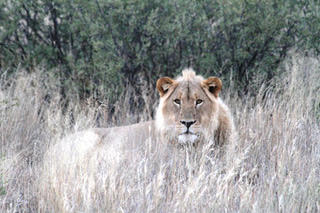CECIL Act Passes House Natural Resources Committee
 H.R.2245 “Conserving Ecosystems by Ceasing the Importation of Large Animal Trophies Act” (CECIL Act) passed the House Natural Resources Committee today on a straight party-line vote, 19-16.The CECIL Act now sits in waiting for a vote in the U.S. House of Representatives.
H.R.2245 “Conserving Ecosystems by Ceasing the Importation of Large Animal Trophies Act” (CECIL Act) passed the House Natural Resources Committee today on a straight party-line vote, 19-16.The CECIL Act now sits in waiting for a vote in the U.S. House of Representatives.
As a hunter and an advocate for conservation, join the Hunter Advocacy Action Center (HAAC) to stay informed on this issue and to tell your Representative to OPPOSE H.R.2245.
Click here to tell your Representative to OPPOSE H.R. 2245
H.R. 2245 will derail clearly proven wildlife management strategies in Africa that are recovering the world’s largest populations of lions, elephants, and other species. If implemented, H.R. 2245 would undermine the authority and the on-going wildlife management plans of several African nations. At best, this legislation is an ill-conceived attempt to substitute emotionalism with rational wildlife conservation.
Rep. Don Young (R-AK) noted that this legislation is based strictly on emotions and not sound science. “We sit here in our high seats, making decisions for other countries, when they have proven they can manage fish and game better than anyone else.”
During the hearing of this bill in July, the Democratic majority chose to listen to American environmental groups, ignoring input from the African countries this legislation would directly impact, including Patience Gandiwa, the Executive Technical Advisor of Zimbabwe Parks & Wildlife Management Authority.
Rep. Tom McClintock (R-CA) said this legislation is “Exhibit A” of the colonial attitude certain lawmakers have in telling African countries how to best manage their wildlife, and that sentiment is “deeply resented across the entire continent for good reason.”
SCI is actively working with legislators and encouraging them to OPPOSE H.R. 2245, the “Conserving Ecosystems by Ceasing the Importation of Large Animal Trophies Act,” introduced by Rep. Raúl Grijalva (D-AZ-3). Also called the CECIL Act and orginally introduced in 2015.
- The CECIL Act is based on the erroneous belief that Washington politicians know best how to manage wildlife in foreign countries. Well-regulated international hunting is beneficial to wildlife conservation. This fact is recognized by the U.S. Fish & Wildlife Service, respected international authorities such as CITES, and respected scientific authorities like the IUCN.
- The CECIL Act will not “conserve ecosystems.” Instead—by restricting or banning importation—the bill will cause more harm than good. Countries that rely on regulated hunting as part of their conservation programs protect up to 5 times more habitat in hunting areas, private ranches, and local community conservation areas compared to countries that do not rely on hunting as a conservation tool.
- The bill would harm, not protect, wildlife in Africa. By targeting U.S. hunters, the bill ignores the fact that countries where hunting is part of wildlife management (like Namibia, South Africa, Tanzania, Zambia, Zimbabwe, and Botswana) have the world’s largest populations of elephant, leopard, lion, white & black rhino, giraffe, and other species.
- Many animals owe their recovery directly to international hunting. They include the black rhino, white rhino, bontebok, markhor, and wood bison—to name a few. The CECIL Act would derail these remarkable successes.
- By killing the International Wildlife Conservation Committee, the CECIL Act would eliminate the collection of scientific data about the beneficial role that hunting plays in world wildlife conservation programs.
- The drafters of the ESA intended that the U.S. encourage foreign conservation efforts, not cripple them. Range countries and rural communities leaders oppose the CECIL Act and have spoken out against it.
Leave African wildlife conservation decisions to African wildlife managers.






